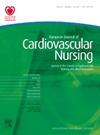泛欧心脏科学联合专业角色比较审查
IF 3.9
3区 医学
Q2 CARDIAC & CARDIOVASCULAR SYSTEMS
引用次数: 0
摘要
引言 在过去的 75 年中,心脏科学(CS)已发展成为欧洲范围内广泛开展的专职专业(AP)。尽管如此,有关该专业的名称、规章制度、执业范围(SoP)和培训途径的比较研究却十分有限。1948 年,英国成立了心脏科学与技术学会 (SCST),CS 作为一种专业得到了认可。在英国,AP 的角色已演变为受过学士学位教育的心脏生理学家和受过硕士学位教育的临床科学家。随着时间的推移,SoP 也在不断发展,接受更高级的培训和实践。其他欧洲国家在专业职称、SoP、教育和培训途径方面也有类似的发展。目的 比较心脏科学相关专业(APCS),包括专业名称、法规、教育、SoP 和泛欧洲特性。方法 收集 2023 年 11 月至 2024 年 1 月期间的数据。仔细研究了欧洲和各国的数据库,以确定术语、专业地位、法规和教育要求。如果没有英文信息,则使用在线翻译。结果 数据库分析显示有 15 种 APCS 角色(表 1)。在 60% 的国家中,该角色得到了提供宣传、教育、培训和定义 SoP 的专业机构的正式认可(图 1)。此外,47% 的国家实行强制许可或注册制度。在 33% 的国家中,APCS 职务被纳入生物医学科学专业。其余国家则使用了九种替代名称来描述该学科。在大多数情况下(66%),教育水平为学士学位,而在其他国家,特别是认可度较低的国家,教育水平为职业教育。在四个国家(奥地利、爱尔兰、冰岛和荷兰),SoP 与英国大致相同,涵盖心电图、超声心动图、有创手术血流动力学、植入式设备和电生理学。相反,其他国家的 SoP 各不相同,可能包括核医学(瑞典和丹麦)或灌注和呼吸(意大利和葡萄牙)。一些国家将 SoP 限制在起搏器或回声技术员等特定岗位上(西班牙、卢森堡和瑞士)。值得注意的是,芬兰、法国和挪威以及大多数东欧国家都不承认 APCS 职务。结论 虽然 APCS 职位在欧洲得到广泛认可,但与其他医疗专业相比,它们缺乏知名度。专业职称、教育和SoP的差异限制了统一身份的发展。将欧洲各地的 APCS 角色联系起来的协作工作可能会增强认同感、提高护理质量并提升该学科的知名度。本文章由计算机程序翻译,如有差异,请以英文原文为准。
A pan-Europe comparative review of allied profession roles in cardiac science
Introduction Over the last 75 years, Cardiac Science (CS) has evolved into a widely practised Allied Profession (AP) throughout Europe. Despite this prominence, there are limited comparative works on AP titles, regulation, scope of practice (SoP) and training routes. The recognition of CS as a profession in the United Kingdom dates from 1948 when the Society for Cardiac Science and Technology (SCST) was established. In the UK, the AP role has evolved into Cardiac Physiologists with education at bachelor’s degree level and Clinical Scientists at master’s level. The SoP has also developed over time, leading to more advanced training and practice. Similar progression in professional titles, SoP, education and training routes also occurred in other European countries. Purpose To compare Allied Professions in Cardiac Science (APCS) including professional nomenclature, regulation, education, SoP, and pan-European identity. Methods Data were collected from November 2023 to January 2024. European and country databases were scrutinised to determine nomenclature, professional status, regulation, and educational requirements. Online translation was used when information was not available in English. Results The analysis of databases revealed 15 APCS roles (Table 1). In 60% of the countries, the role is officially recognised by a professional body that provides advocacy, education, training, and defines SoP (Figure 1). Moreover, 47% of countries operate a mandatory licensing or registration scheme. In 33% of countries, APCS roles are incorporated within the Biomedical Science profession. In the remaining countries, nine alternate titles are used to describe the discipline. In most cases (66%), education is at bachelor’s level, while in others, particularly where recognition is more limited, it is at a vocational level. In four countries (Austria, Ireland, Iceland, and The Netherlands), SoP is broadly in line with the UK, covering electrocardiography, echocardiography, haemodynamics for invasive procedures, implantable devices, and electrophysiology. Conversely, in other countries SoP varies and can include nuclear medicine (Sweden and Denmark) or perfusion and respiratory (Italy and Portugal). Some countries restrict SoP to defined roles such as pacemaker or echo technicians (Spain, Luxembourg, and Switzerland). Notably, Finland, France, and Norway, as well as most Eastern European countries do not recognise APCS roles. Conclusion While APCS roles are widely acknowledged in Europe, they lack visibility compared to other health professions. The variability in professional titles, education, and SoP constrain the development of a unified identity. Collaborative works connecting APCS roles across Europe may enhance identity, improve quality of care and raise the profile of this discipline.
求助全文
通过发布文献求助,成功后即可免费获取论文全文。
去求助
来源期刊

European Journal of Cardiovascular Nursing
CARDIAC & CARDIOVASCULAR SYSTEMS-NURSING
CiteScore
5.10
自引率
10.30%
发文量
247
审稿时长
6-12 weeks
期刊介绍:
The peer-reviewed journal of the European Society of Cardiology’s Council on Cardiovascular Nursing and Allied Professions (CCNAP) covering the broad field of cardiovascular nursing including chronic and acute care, cardiac rehabilitation, primary and secondary prevention, heart failure, acute coronary syndromes, interventional cardiology, cardiac care, and vascular nursing.
 求助内容:
求助内容: 应助结果提醒方式:
应助结果提醒方式:


